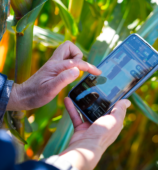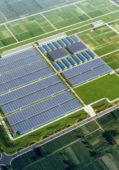Sustainable and environmentally conscious development is a core value of DPD Hungary Kft. The continuous reduction of emissions is in line with social expectations and we are committed to this goal together with our customers, partners and employees. Many improvements are being made to make us an international reference for sustainable parcel transport.
Szabolcs Czifrik, managing director
Company Name:
DPD Hungary Kft.
Implementation Year:
2023
Focus Areas:
Climate protection and adaptation, Alternative energy use and energy efficiency, Reducing air pollution, Sustainable supply chain
Program Objective:
The Geopost Group, of which DPD Hungary is a part, is the first global parcel delivery company to have both short and long-term CO2 emission reduction targets approved by the Science Based Target Initiative (SBTi).
The scientifically validated target of achieving net zero emissions by 2040 puts Geopost on a clear path to becoming the international benchmark for sustainable delivery.
- Short-term target: 43% reduction in CO2 emissions by 2030 (compared to 2020 base year)
- Long-term target: 90% reduction in CO2 emissions by 2040 (compared to 2020 base year)
- Ambition: net zero emissions by 2040, with 10% of remaining emissions offset by 2040
Program Measures and Commitments:
By 2025, 350 European cities will have low-emission vehicle transport and an 83% reduction in greenhouse gas emissions.
To reach this target, we will also convert the energy supply of logistics sites and offices to renewable energy sources and increase energy efficiency.
Our aim:
- 70% of energy from renewable sources by 2030 (100% by 2035)
- Increase the share of electric vehicles in the company car fleet to 90% by 2030 (100% in 2035)
DPD Hungary Kft. also contributes to the Group’s goal to make Geopost an international reference for sustainable transport and a leading supporter of the acceleration of e-commerce.
Geopost aims to provide direction to the industry. The small parcel delivery business in Hungary is highly competitive, so our aim is to stand out from the competition by delivering a high level of customer-oriented service and by implementing a uniquely ambitious sustainability strategy. It is increasingly important for our partners that our emissions reductions also reduce their carbon footprint. To illustrate these results, we have developed a tool that allows you to track the GHG emissions associated with the transport of your parcels in your “myDPD for business” account.
Today, more than 30% of our fleet of nearly 700 vans is already electric, but we will add 15 more by the end of the year until we gradually reach 100% by 2030. 5 new electric trucks will join DPD’s fleet early next year and 5 more in the second half of the year to replace conventional diesel trucks on some of the backbone routes within the country. This move will lead to a very significant reduction in GHG emissions.
We are also gradually converting the energy supply of logistics sites and offices to renewable energy sources and increasing energy efficiency. At present, our depots have a total of 400kW of solar panels.
Program Impact and Results:
- The number of electric cars in the national fleet has increased to more than 30% in recent years.
- Kecskemét, Pécs, Dombóvár, Komárom, Győr, Szolnok, Miskolc, Szeged, Debrecen – in these cities, only electric cars are used for deliveries.
- By the end of 2023, 148 fast chargers and 2 electric chargers will have been deployed to serve our electric fleet in 8 locations.
- We have also increased the share of our energy generation from solar panels, in our rented depots and at our parcel sorting facility in Budapest.
- We purchase the majority of our electricity from renewable sources.
- In the first quarter of 2024, we recorded a 21% increase in the number of parcels compared to 2023, but our GHG emissions did not increase during this period. This shows that our emissions per package have decreased significantly as a result of our measures and investments.
Related Links:
DPD fenntarthatósági aloldal (in Hungarian)
Geopost YT video about sustainability objectives
Keywords:
sustainable transport, SBTi, climate protection, electric fleet, GHG emissions




